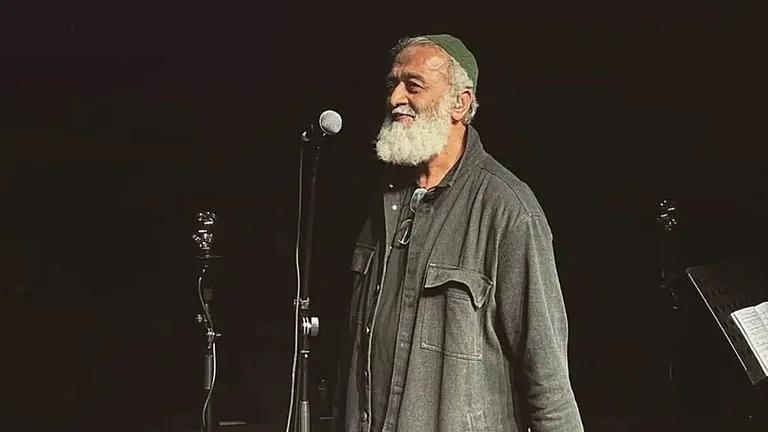Arundhati Roy's neatly side-stepped the 'what next?' syndrome by smartly switching genres and leaving the ivory towers of fiction for the radioactive earth of Pokhran and the muddy waters of the Narmada. Meera Syal's debut novel was also a bit of a stunner: a wonderfully wild, wicked romp through childhood for a young Punjabi girl growing up in Wolverhampton, entitled Anita and Me. I loved it. The critics loved it. The publishers loved it. It was serialised for Radio 4 in the UK: the listeners loved it. "More!" we cried. "Encore!" So, being an obliging as well as massively talented young woman, she gave us more. Unfortunately, in this instance, more really is less.
Life Isn't All Ha Ha Hee Hee is a sort of grown-up Anita and Me, where the tribulations of young Meena in the earlier novel are transposed into the messy and more complicated world of adults and adulterers. The three main characters, Chila, Sunita and Tania, have been best buddies since school, and the novel kicks off with Chila's marriage to Akash, a dashing, handsome, philandering man-quite a catch for Chila whom everyone but herself had pretty much consigned to the dustbin labelled 'spinster' by virtue of her dark skin and low IQ. But what others see as stupidity, Sunita and Tania know to be an other-worldly innocence; and what others see as childishness, Akash discovers to be an unsophisticated and natural eroticism matched with the capacity to be the perfect, loving wife which so many of his other conquests simply lacked.
Chila, the blushing bride; Sunita, the harassed and frustrated housewife; and Tania, the stunningly beautiful, sophisticated and successful media babe. Each of the three neatly encapsulate three aspects of modern, Asian-British womanhood. A bit too neatly if you ask me. It seems like a disco remix of the good old, bad old goddess/whore tune which our feminist forebears struggled to get beyond. Even the walk-on bit parts performed by sundry others seem strangely iconic. If it were a film, the credits would read: Old Woman Behind Twitching Net Curtains, Young Asian Doctor with Bedside Manner and Come-to-bed-eyes, Belligerent Dyke #1, Belligerent Dyke #2, Fussing Relatives, Annoying White Men, Annoying Asian Men and so on. Get the picture?
Even Tania, whose character is potentially the most boundary-breaking and self-aware, lapses into cliche. Confronted with the usual questions about her role as an "Asian woman director," she responds with "pithy street-wise soundbites: 'I'm a director first, and an Asian second', 'I care about my audience's IQ, not their race'. 'Your talent is your calling card. No one calls Woody Allen a Jewish film-maker any more'." I'm sorry but these are not pithy street-wise soundbites: they are terribly ordinary cliches, and quite tired ones at that. We'd just expect something a bit more from someone described as having a huge intellect, "photogenic enough to be flirted with, brainy enough to backhand the compliments with panache."
The novel falls into two parts. The first, dominated by the three friends and their lives, makes a perfect subject for Tania's TV film on relationships. This is a cross between a soap opera and documentary (soppumentary?), cruelly revealing the small flaws which crack wide open on the big screen at her premiere-a betrayal, which not only casts Tania out of her community, but out of the charmed circle of her friendship. Adding insult to injury, she tops this off with a smouldering, in-the-rainy-dark smooch session with Chila's husband and old flame, Akash-witnessed separately but simultaneously by Chila, Sunita and Tania's boyfriend, who melt into their respective corners to lick their wounds. Their tactics are a bit different of course: the boyfriend simply disappears from the plot (conveniently); Sunita gets a make-over, loses a lot of weight, and becomes a bit of a babe herself (guiltily); and Chila, gets pregnant (stoically), blooms (appropriately), and realises the emptiness within (ironically).
The question of loyalty-to tradition, to one's friends, to one's family or to one's vocation-hangs heavy on the hearts of our trio, and never really gets resolved as they compromise their way through life, as all grown-ups have to. It's all a bit messy-there are tearful partings, torrid tantrums and tearful reconciliation i.e. lots of smudged mascara, but everything finally comes out in the wash.
The problem with the book is that it's neither ha ha hee hee enough, nor serious enough. It's as though Syal started off writing a comedy, decided it should be tragedy, and ended up with a farce. It's a shame, because Syal's such a good comedienne-her script for Gurinder Chhada's film Bhaji on the Beach was excellent, and she's become a household name through the hit comedy series on British TV, Goodness Gracious Me, in which she also starred. Perhaps if she'd stuck to her original impulse, and played to her strengths, the book would've swirled with as much sparkling magic as the snow-globe on the front cover. As it is, the lightness of touch, for which she's so justly renowned, sinks under the combined weight of the plot and the heavy-handed characterisation. Maybe we'll just have to wait for the sequel...third time lucky?


























